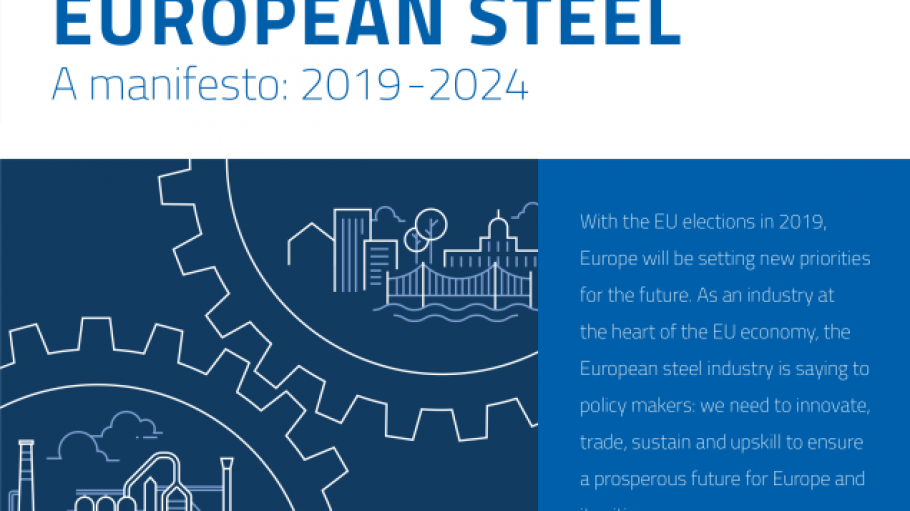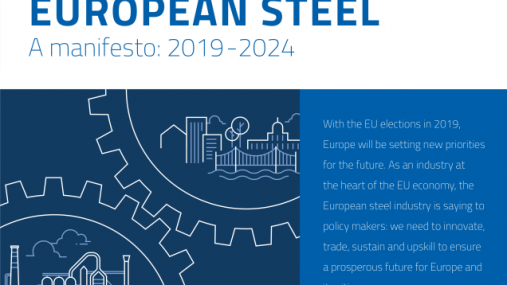

With the EU elections having taken place in May 2019, Europe is setting new priories and direction for the future. As an industry at the heart of the EU economy, the European steel industry is saying to policy makers: we need to innovate, trade, sustain and upskill to ensure a prosperous future for Europe and its citizens.
In the light of slowing demand, both generally and specifically for steel, persistently high global overcapacity of 550 million tonnes – 25% of global production capacity – high and volatile raw material and carbon prices, and surging imports, the European steel industry is facing potential crisis.
This manifesto sets out the footprint and importance of European steel to the EU economy, and explains why we need to make the industry more innovative, skilled and sustainable while also ensuring there is a robust trade policy that defends the sector against the challenges posed by overcapacity and trade surges.

Download this publication or visit associated links
Brussels, 22 October - Ahead of the European Council meeting on 23 October, Europe’s steel and automotive industries — two strategic pillars of the EU economy — are issuing a joint call for a realistic and pragmatic pathway to transformation and keeping investments in Europe. Together, these sectors form the backbone of Europe’s industrial strength, supporting over 13 million jobs in automotive and 2.5 million in steel (directly and indirectly), and driving innovation across entire value chains.
Joint Statement
Strasbourg, 07 October 2025 – The new trade measure presented today by the European Commission is a long-awaited proposal to forcefully defend the European steel sector, in full respect of WTO rules, from unfair imports flooding the EU market due to massive global overcapacity. The provisions unveiled by the Commission respond to the needs of the sector and represent a real lifeline for EU steelmakers and steelworkers. The European Parliament and the Council should therefore adopt it as a matter of urgency to enable its entry into force at the beginning of 2026, says the European Steel Association (EUROFER).